Stroke Care Within Easy Reach at McLeod
With medical centers from the midlands to the coast, patients and their families will find stroke care, treatment and rehabilitation nearby. A stroke occurs when blood to the brain is blocked or when a blood vessel in the brain bursts. Stroke ranks as the #3 killer in South Carolina and the leading cause of adult disability in the U.S. In 2014, McLeod Regional Medical Center became the first hospital in the region to become certified as a Primary Stroke Center. And we retain that certification to date. In 2019, McLeod Health Loris and McLeod Health Seacoast became Acute Stroke Ready by DNV GL Healthcare. DNV is a certification body that helps hospitals achieve excellence by improving quality and safety through hospital accreditation.
Spot Stroke Symptoms B-E F-A-S-T. If you know the symptoms of stroke, you might save a life. They are: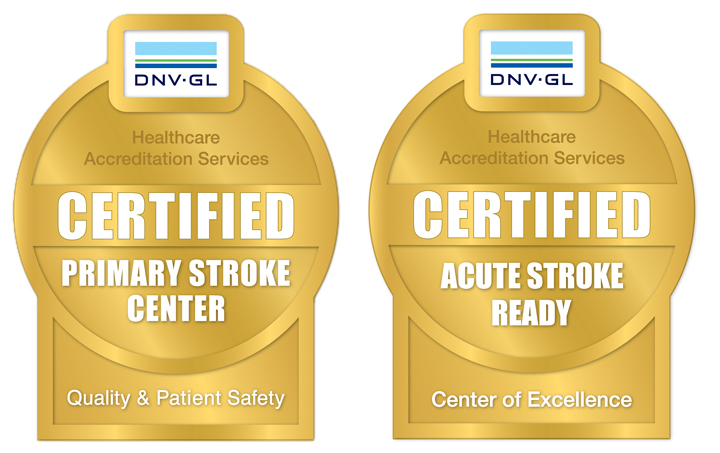
- Balance – Loss of balance or coordination
- Eyes – Trouble seeing out of one or both eyes
- Face – Sudden numbness or weakness of the face.
- Arm – Numbness in arms or legs, especially on one side of the body.
- Speech – Trouble speaking or understanding speech.
- Time – Seek treatment, call 911, as soon as possible. Every minute you wait, the chances of recovery shrink.
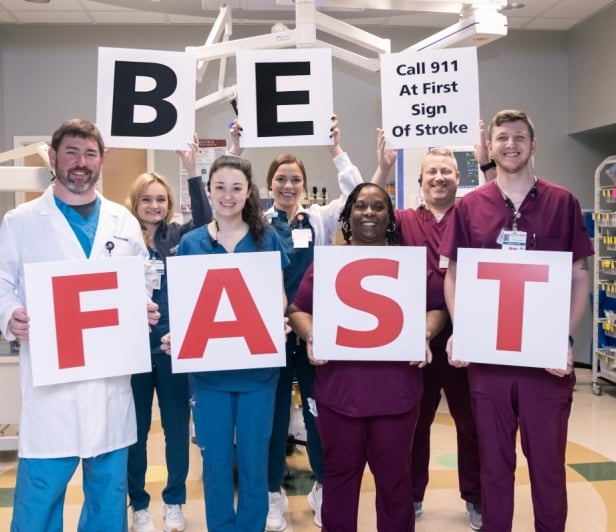

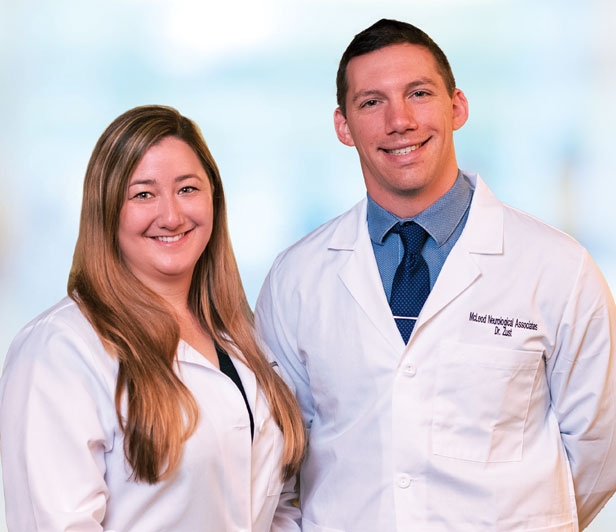
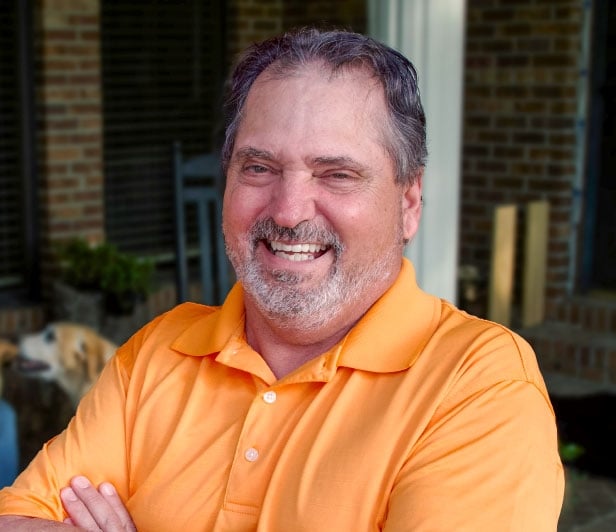
-
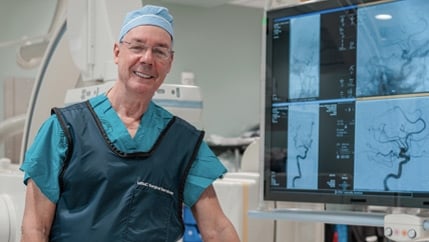
Thrombectomy: Life-Saving Stroke Procedure
Ischemic strokes occur when a blood vessel to the brain is blocked by a clot. If medication does not work, we can perform a Thrombectomy, a minimally invasive procedure to remove a blood clot from a brain artery. Not all hospitals are equipped to perform this procedure. At McLeod Health, Thrombectomy is performed by an Interventional Neurologist, such as Dr. Edgard Pereira, a highly skilled physician who specializes in problems affecting the central nervous system — the brain or spinal cord.
-
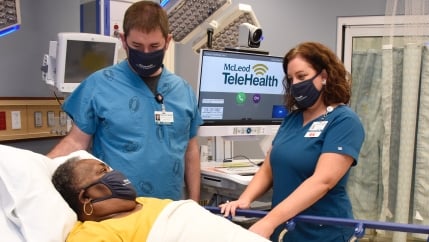
TeleSpecialists Network Brings Stroke Subspecialists into McLeod Emergency Departments
A web-based, telemedicine system enables consultations between Emergency Department physicians and Board Certified Neurologists 24/7. McLeod Regional Medical Center in Florence is part of the TeleSpecialists network, as well as McLeod Health Clarendon, McLeod Health Cheraw, McLeod Health Dillon, McLeod Health Loris and McLeod Health Seacoast for rapid assessment for critically ill stroke patients.
-
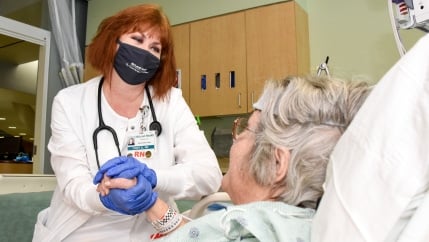
Specialized Stroke Unit at McLeod Regional Medical Center
Fast action following a stroke cannot only save a life but speed recovery and a return to quality of life. At McLeod Regional Medical Center, the Neuroscience Care Unit in Florence stands ready to treat stroke patients. McLeod Regional Medical Center in Florence is home to a specialized 20-bed neurology and stroke unit – the first in the region dedicated exclusively for the treatment and rehabilitation of people who have suffered a stroke.
READ MOREOur nurses, are specially trained to spot subtle changes in patients suffering from stroke which is imperative in the treatment of stroke.
Close -
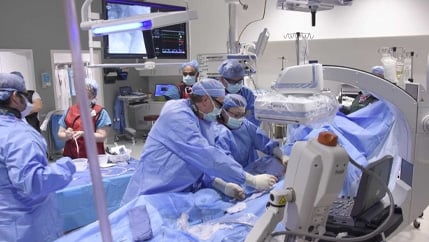
TCAR – A Big Name in Stroke Care
Ischemic strokes account for 80 to 90% of strokes. An estimated 20 to 30% of those are caused by blockages in the carotid arteries, which carry blood to the brain. If left untreated these blockages can lead to a stroke. McLeod has a stroke treatment to clear plaque in the arteries called Transcarotid Artery Revascularization or TCAR. TCAR is performed through a small incision at the neckline. It implements a system to protect any plaque that may break loose during the procedure from reaching the brain and potentially causing a stroke. A stent is then placed that holds the carotid artery open to allow normal blood flow back to the brain and reducing the patient’s risk for stroke.
-
McLEOD REGIONAL MEDICAL CENTER FLORENCE
843-777-2000 -
McLEOD DARLINGTON
843-777-1100 -
McLEOD DILLON
843-774-4111 -
McLEOD LORIS
843-716-7000 -
McLEOD SEACOAST
843-390-8100 -
McLEOD CHERAW
843-537-7881 -
McLEOD CLARENDON
803-433-3000



-
McLEOD REGIONAL MEDICAL CENTER FLORENCE
843-777-2000 -
McLEOD DARLINGTON
843-777-1100 -
McLEOD DILLON
843-774-4111 -
McLEOD LORIS
843-716-7000 -
McLEOD SEACOAST
843-390-8100 -
McLEOD CHERAW
843-537-7881 -
McLEOD CLARENDON
803-433-3000
 Find a Doctor
Find a Doctor  Locations
Locations  Services
Services